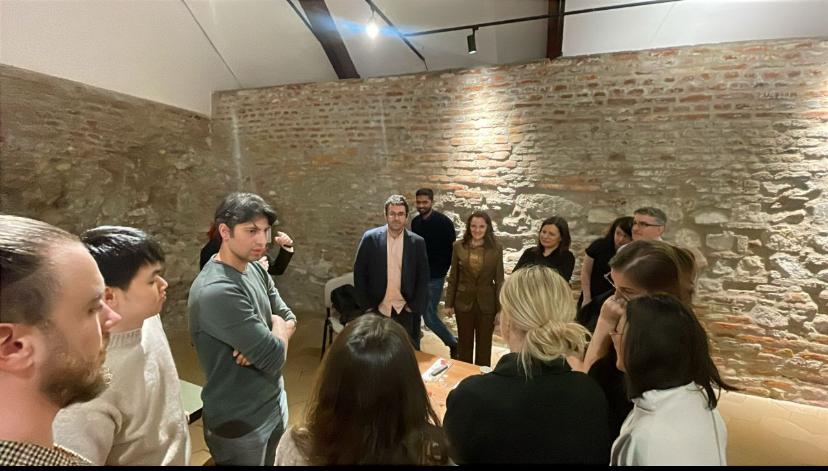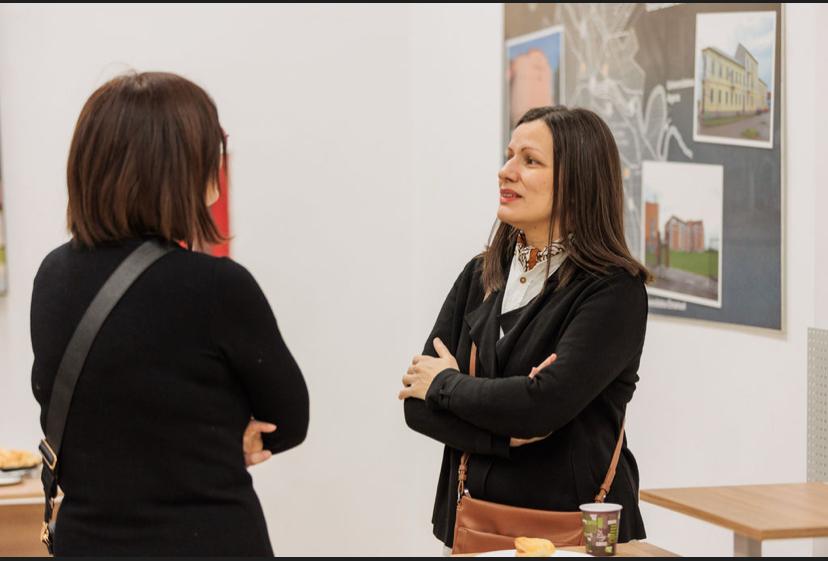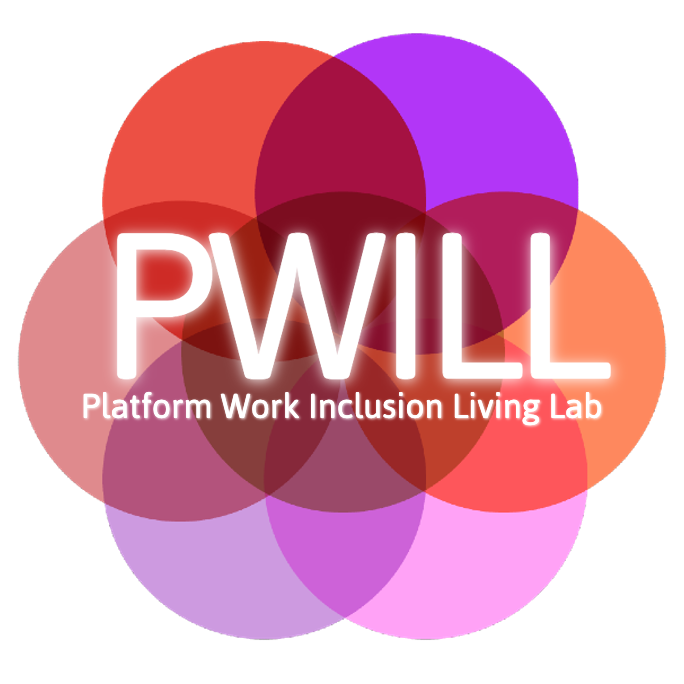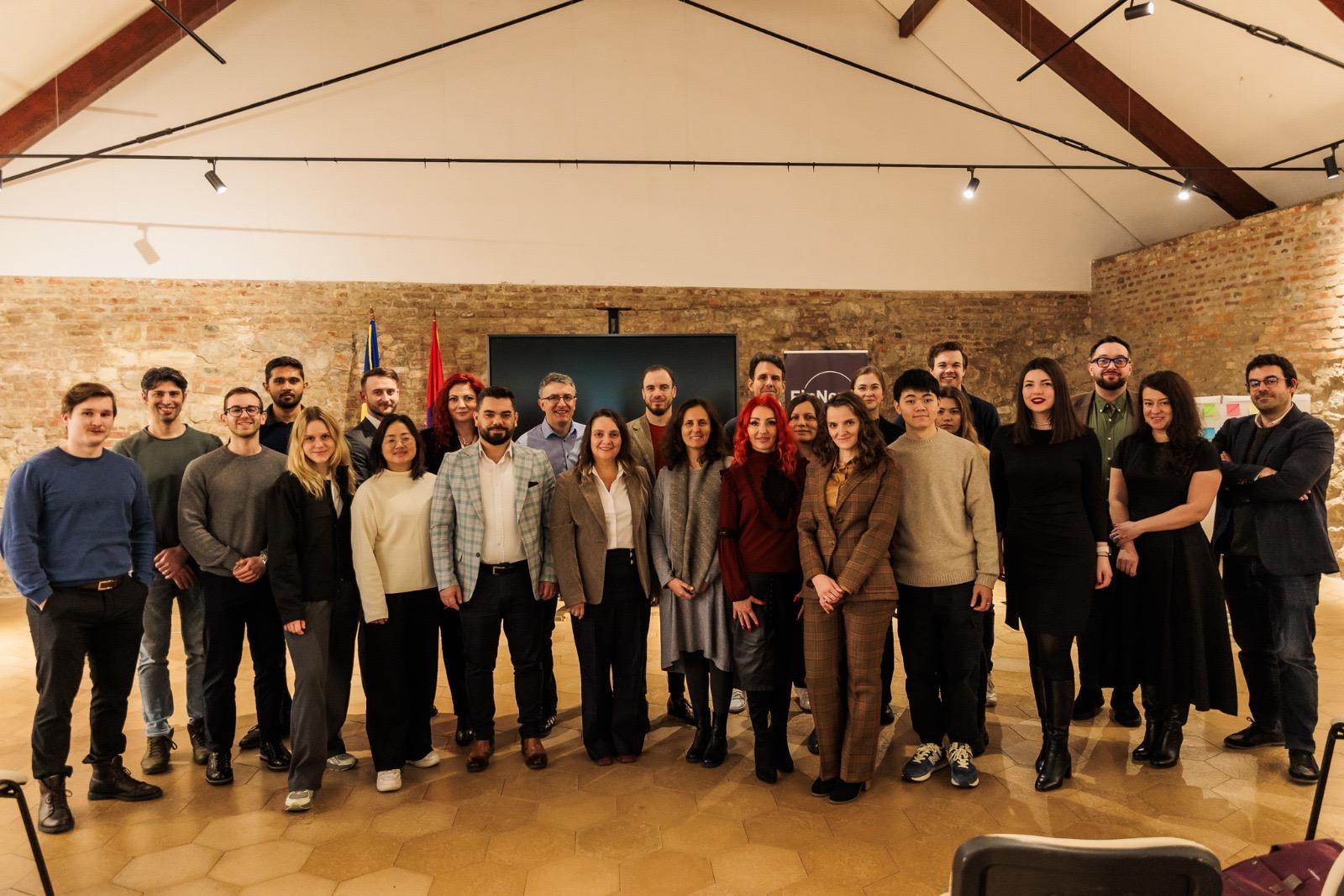Carried out by Olivija Filipovska
During the period from 16/01/2025 to 22/01/2025, Dr. Olivija Filipovska, a research advisor from the Geostrategic Institute Global, Skopje carried out a Short-Term Scientific Mission, that was supported by CA 21118 P-WILL (Platform Work Inclusion Living Lab). She was hosted by Dr Ioana Coita Florina, professor from the University of Oradea, Romania.
Our action member Olivija Filipovska had full access to the MSCA Digital Finance event and all the networking side events that took place between 20.01-22.01.2024 at Oradea University and Oradea Tech Hub. That was an amazing learning and networking experience. Details of the main program could be found here: Ethics in AI and Digital Finance Training [MSCA DIGITAL EVENT] – FinNex.
The following key topics were discussed:
– Ethical guidelines for AI models
– XAI for Finance
– Cognitive biases: from humans to machines
– AI Act: regulation & compliance
– Diversity aspects in Banking/Fintech
– Ethics in credit scoring
– Transparency, Diversity, and Non-Discrimination in Data
– Balancing the Scales: Ethics, Fairness, and Bias Mitigation in AI Governance for Finance
– Embedding Corporate Digital Responsibility in Financial Services Organization
– Responsible AI.
The MSCA Doctoral School in Digital Finance was a great opportunity for Olivija Filipovska to interact with many different stakeholders from the academia and industry, including distinguished professors and early career researchers – PhD students from different European universities, including: the University of Twente, University of Bucharest, University of Cluj-Napoca, University of Coimbra, University of Berlin. Olivija got introduced in person with the activities related to ethical AI business practices of the team from Innovation Research Hub of Raiffeisen Bank Austria and Banka Transylvania. Additionally, she participated in discussions for potential collaborative projects and considered research activities for joint research initiatives with Dr Ioana Coita Florina and the Academic Spinoff Finnex. They warmly supported Olivija’s action research initiative related to Gender Balance in Fintech Platforms and extended an invitation for collaboration in joint research papers that will be conducted by their Research Package 9 of the Doctoral School- Ethics in AI. Details about the event were published in the local media. The link of the post from the magazine can be found on Cadre didactice de la 25 de universități europene, la Universitatea Oradea | Transilvania Business.
This STSM contributed to capacity building of a researcher who is aiming to implement academic knowledge in fintech industry and is investigating about business ethics in fintech platforms in that regard. The goals and activities of our COST action were also shared in person with participants from the doctoral network. The networking activities are going to continue in virtual settings. The overall prospective outcome of this STSM will be extended collaboration with members outside of our COST action and joint research activities related to ethics in the fintech landscape.






